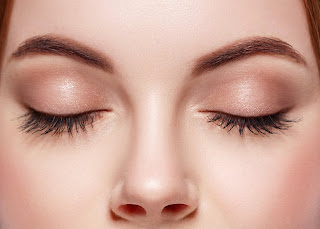Aromatherapy 101
You may have heard of aromatherapy over the years and perhaps even grew curious to try it out. While this form of therapy can come off as something one might be skeptical of, there are a surprising number of ways in which aromatherapy can help alleviate any issues felt on a physiological or psychological level. Read on how you can start introducing essential oils into your self-care routine.
What is aromatherapy?
Natural plant extracts are used in aromatherapy, a holistic healing method, to support health and well-being. People also refer to it as essential oil therapy.
Aromatherapy uses medicinally effective aromatic essential oils to enhance physical, mental, and spiritual well-being. However, remember that aromatherapy cannot concretely treat infections, rashes, or diseases, but it can be used in conjunction with other medical treatments or surgeries.
It has become quite trendy in recent years with the popularity of the self-care movement seen on social media. Experts in the field claim that It improves mental and emotional well-being.
Historically, aromatherapy has been used by many civilizations around the world for thousands of years. Aromatic plant elements were used in resins, balms, and oils by ancient civilizations in China, India, Egypt, and other places.
These organic ingredients were employed for therapeutic and spiritual objectives. These natural concoctions were known to affect their users' mental and physical well-being positively. Interestingly enough, the term aromatherapy as we know it today was not used until a French chemist and perfumer by the name of René-Maurice Gattefossé first mentioned it in 1937.
How does it work?
As the name suggests, aromatherapy is often used topically or through inhalation. The amygdala, the brain's emotional center, is mainly affected by the fragrance molecules in essential oils when they are breathed since they pass straight from the olfactory nerves to the brain.
These cells feature microscopic hairs that are used to identify a particular fragrance. Nerve impulses generated by this process are sent to the limbic system, the area of the brain most closely connected with emotions, instincts, and survival. According to scientists, this area's nerve signal activity changes the brain's chemistry, which in turn affects mood.
Techniques
Various techniques allow the user to experience the benefits of aromatherapy. Anyone can try these methods in the comfort of their home or at a spa with certified technicians. A popular way is to purchase a diffuser and have it spread the lovely aroma of your essential oil of choice.
You can also use aromatic spritzers to let out a pleasant scent to uplift your mood. Other methods include using inhalers to alleviate asthma issues, bathing salts to calm the mind and relax muscles after a strenuous workout, and topical creams to soothe the skin.
Benefits
There is a reason why aromatherapy has been used for thousands of years. Many people have found great results with essential oils and other aromatherapy techniques to alleviate their medical issues, whether physical or mental.
The most common benefits of aromatherapy include its ability to relieve pain in sore joints; help people improve the quality of their sleep; considerably lower stress or feelings of anxiety; possibly boost immunity, and alleviate pain from migraines.
Furthermore, aromatherapy is also used to help women feel calmer during labor, brighten one's complexion, and aid in improving digestion.
Treat Yourself to an Unforgettable Spa Experience!
Another great way to reap the benefits of essential oils is through massage. At Balsam Day Spa, we offer unique holistic massage packages, including one with aromatherapy. If you are interested in the treatment, call us at (905) 895-7777 or fill out our website's contact form to book an appointment with one of our massage specialists.





Comments
Post a Comment